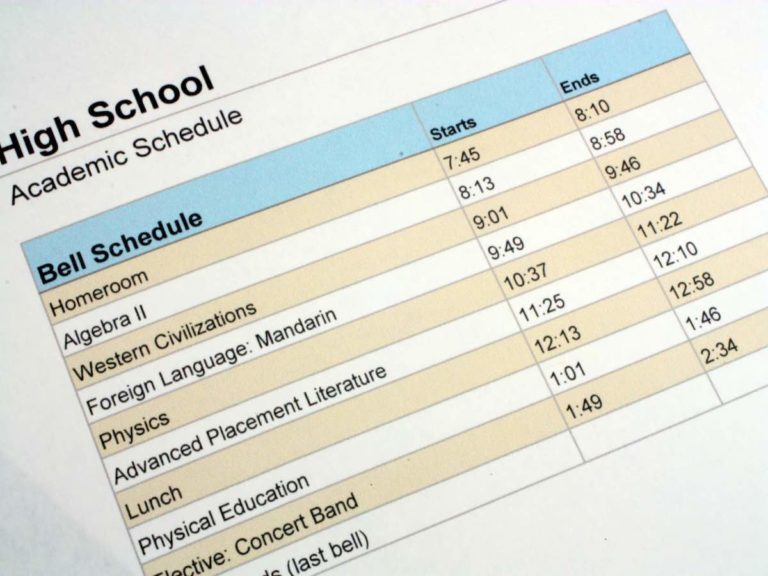Independent Study in College
Feel that a course is essential for your intended career path but your college isn’t offering it?
You may design it and ask your institution to allow you to take it independently, with minimum supervision of a faculty member.
An independent study is a unique academic opportunity where undergraduate students explore a specific area of discipline more in-depth via a course that they themselves designed.
Studying independently allows them to customize their learning experience while allowing them to earn credit toward their bachelor’s degree.
How an Independent Study Works
Before anything else, let’s get one thing straight: independent study is only allowed if the course of your own planning and designing is not being offered by the college or university you are attending.
You will not be given the chance to study the course of your creation if it’s something that’s similar to a traditional course that you and your peers can take.
Let’s talk about some of the most important things you need to know about studying independently in college to have an idea of how to go about applying for it and completing the course you have designed yourself.
Eligibility
Not every undergraduate student is eligible to apply for an independent study — who can and cannot study a subject independently depends on the requirements and policy of the college or department/school that hosts an independent study.
Having a cumulative GPA of 3.0, for instance, is an important requirement to meet.
In many instances, freshman and sophomore college students are not allowed to have independent study.
The opportunity to study a subject matter that is not a part of the standard curriculum is usually reserved for undergraduates who are in their junior and senior year of college as well as graduate students.
Application
The quest to study independently in college usually begins with filling out the independent study form, whose pieces of information asked can vary from institution to institution and allows students to design their own independent study.
It’s also important for the undergraduate to find a faculty member who will agree to provide much-needed guidance.
Without a faculty member agreeing to provide supervision, you will not be allowed to have an independent study.
And also, opt for a faculty member with whom you have a good rapport — awkward and difficult meetings once a week or so can get in the way of a successful independent study and overall college experience.
Proposal
Just because you want to study something independently doesn’t mean you can have an independent study.
Submitting a proposal is one of the most important steps to take when planning on being an undergraduate taking a course independently.
Some of the things to include in your proposal include the topic you intend to study as well as the reason for taking the proposed course and a preliminary list of sources and reading materials.
At some colleges and universities, it’s not uncommon for students who are interested in studying independently to make a presentation before their chosen faculty member or, in some instances, a panel of teachers.
Deadline
The deadline for the submission of the independent study form, as well as the proposal and other required documents and materials, can vary from school to school, where students are given the opportunity to study courses independently.
It’s, therefore, important to check with the host department or school when the application deadline is.
Some postsecondary institutions have set the deadline for independent study applications one week before the last day of dropping or adding classes in a given semester.
However, because the application process for studying independently can be complicated at times, it’s generally a good idea to plan and apply as early as you possibly can.
Learning Process
As expected, the learning experience during an independent study in college is away from a more traditional approach to undergraduate studies where students spend most of their waking hours inside a classroom.
Although you will be studying solitarily alone most of the time, you will meet with the faculty advisor of your choosing.
How often you will meet with him or her will depend on various factors, such as how hectic the teacher’s weekly schedule is or the schedule that the two of you have agreed upon during the application and proposal process.
Meeting with a faculty advisor can be as frequent as weekly or as sparse as once a month or once per semester.
Frequency
In most instances, per semester, undergraduates are not allowed to take more than one independent study — like other traditional courses, students are given an entire term to complete a course, standard or self-created alike.
How many independent studies college students may have throughout their undergraduate studies can also vary.
At most institutions of higher education where studying independently is allowed, for instance, students may take up to six credits of independent study towards their undergraduate degree.
Since a single undergraduate study usually consists of three credits, that’s equivalent to up to three independent study courses throughout one’s stint as an undergraduate.
Independent Study Examples
Let’s take a quick look at how an independent study looks at some of the top colleges and universities of the nation as per US News’ Best National University Rankings.
Princeton University
Junior and senior undergraduate students are the only ones who are allowed to study independently at Princeton, which the elite institution considers as its defining feature of an undergraduate education.
Many of the school’s departments and programs also provide funding designed to support independent studies.
Massachusetts Institute of Technology
At MIT, it’s important for an undergraduate student doing an independent study to meet with a faculty advisor. Otherwise, he or she may get a failing grade if the advisor hasn’t seen the individual all semester.
Harvard University
While many colleges and universities limit undergraduate students to three independent studies throughout their stay in college, Harvard, on the other hand, allows up to four courses studied independently.
In addition, students with satisfactory academic records may petition to have non-letter-graded credit independent studies.
Stanford University
Undergraduate students are recommended by Stanford to start looking for a faculty advisor even before they come up with a fully formed independent study idea — they can seek advice from them in terms of what course is best to design.
Yale University
Undergraduates at Yale are required to submit a proposal for their independent study undertaking way ahead of their first class.
So, in other words, it’s important for them to start planning weeks before the academic year or semester starts.
The prestigious institution also offers independent research projects during the summer term.
Duke University
What’s so nice about Duke is that it permits students to have more than one independent study per semester, although it’s a must for the course topics and work required to be distinctly separate.
University of Pennsylvania
At UPenn, the pursuit of independent study begins with consulting an academic or departmental advisor.
Some of the schools where studying independently is possible include the College of Arts and Sciences, the School of Engineering and Applied Science, the School of Nursing and the Wharton School.
Brown University
Other than independent studies, Brown also offers Group Independent Study Projects (GISPs), which allow a group of students to collaboratively study an area of study that is not available in traditional or regular courses.
Pros of Independent Study
Gaining In-Depth Knowledge
The primary goal of independent study in college is to allow an undergraduate or graduate student to learn more about an academic topic that none of the courses in a standard or established curriculum covers.
Creating a course about a particular area in a specific discipline enables you to obtain more in-depth knowledge pertaining to it, thereby allowing you to gain expertise in the matter.
Many employers of today prefer candidates with relevant knowledge and skills to individuals who simply have credentials under their belt.
Pursuing Your Interests
There are only so many courses available in college.
Just in case none of the available ones perfectly aligns with your personal interest, proposing an independent study may be the solution to the inability to truly pursue something that you truly want to explore or get invested in for personal or prospective career reasons.
An independent study in college allows you to pursue something that you love, including something so unique and ground-breaking that it’s worthy of being turned into a college course like no other.
Developing Time Management and Self-Discipline Skills
Other than allowing you to obtain knowledge from a different perspective and in a different approach, an independent study in college also makes it possible for you to acquire and polish certain skills, including those that will enable you to successfully complete your independent study as well as stand out in the job market.
As a student who is studying an exclusive subject matter separate from your peers, you develop a number of soft skills such as time management and self-discipline as well as organizational, critical thinking and problem-solving skills.
Learning at Your Own Pace
Studying something independently makes you a non-traditional student similar to those who are taking certain or all courses online.
And speaking of which, there is something common between students who are taking independent studies and students who are attending virtual classes: they are given the opportunity to learn at their own pace.
However, it’s still important that you plan strategically and stick to your schedule because you will still have to complete the course you created yourself before the semester is through — generally, one independent study is allowed per term.
Having a Personalized Learning Experience
Last but not least, studying independently enables you to have a unique and more tailor-made college experience, the kind that none of your peers can benefit from given that they are taking standard or traditional courses.
While it’s true that a personalized undergraduate studies can contribute to a prolific career in the future, it can also be advantageous to you as a current student in college given that personalization is a contributor to increased college retention and improved student outcomes.
So, in other words, attaining academic and college success is more likely.
Cons of Independent Study
Isolation and Limited Interaction With Others
The presence of the word “independent” makes it clear that an independent study requires you to take and complete the course alone, although you will still be able to interact with your peers for other more traditional courses.
Around 47% of college students are concerned about feeling isolated, while about 53% say they are lonely.
Your independent study of a discipline may suffer and, ultimately, fail if you’re unable to handle isolation quite as well as other college students.
Need for Self-Reliance
You can indeed obtain guidance and advice from your faculty advisor throughout the duration of your independent study.
However, it’s important to point out that much of the responsibility for learning and succeeding is put on your shoulders, which is why relying heavily on yourself is a crucial component of studying independently in college.
Much like students who are working on a college degree partially or fully online, you need to remain self-reliant, motivated and disciplined if you want to successfully complete your independent study and reap the perks that come with it.
Limited Support and Resources Potential
How closely faculty members want to be involved with students during their independent studies can vary greatly — some may be willing to meet with the students every week, while others may prefer to meet them after the semester.
In any case, there is always the risk of you having limited guidance from your designated faculty adviser as well as resources because the course is not learned in a traditional classroom setting.
As such, it’s important for any undergraduate who is studying something independently to be resourceful, creative and self-sustaining to succeed.
Higher Workload
Compared to your peers who are taking courses that are a part of the curriculum, you will have to put more work into taking the course you have designed yourself and must take independently.
Aside from the fact that you need to study alone with the occasional guidance of your faculty advisor, you also must put the expected amount of work into it.
A three-credit independent study, for instance, will require you to spend three hours in class plus one hour of study outside of class per credit, which brings the number of hours of work to nine every single week.
Risk of Not Being Recognized
There’s no question that your independent study will be honored by your college that allows it.
Unfortunately, the same cannot be said for all employers out there — while some may not completely recognize the validity of an independent study given that the acquisition of knowledge and skills is non-traditional, others may be completely alien to the concept.
It’s therefore important to consider not only the immediate but also long-term advantages and disadvantages of an independent study because your choice can have an impact on your career prospects, marketability and earning potential.
Disclaimer: The views and opinions expressed in this article are those of the authors and do not necessarily represent those of the College Reality Check.





